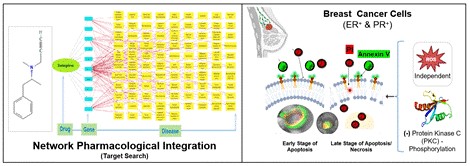
Repurposed Antidepressant Offers Promising, Cost-Effective Treatment for Breast Cancer
In a groundbreaking study, researchers have discovered that an existing antidepressant drug, Selegiline (L-deprenyl), could be repurposed to provide a cost-effective treatment for breast cancer. This finding offers new hope in the ongoing battle against one of the most common forms of cancer.
The development of new anticancer medications has long been a complex and costly endeavor, often involving years of research, drug trials, and regulatory hurdles. However, the practice of drug repurposing—where existing drugs are explored for new therapeutic uses—is gaining traction among biomedical scientists as a faster and more economical alternative.
A team of researchers led by Dr. Asis Bala at the Institute of Advanced Study in Science and Technology (IASST) in Guwahati, under the Department of Science & Technology (DST), Government of India, has been at the forefront of this innovative approach. Their recent study suggests that Selegiline, originally developed as a monoamine oxidase (MAO) inhibitor to treat depression, could also serve as an effective anticancer therapy, particularly for breast cancer.
The researchers conducted integrated network pharmacological studies, revealing that Selegiline interacts with ten genes closely linked to various forms of cancer. These findings were further supported by a preliminary evaluation of Selegiline’s effectiveness on six different cancer cell lines. The drug was found to be particularly effective against estrogen and progesterone-positive (ER+ & PR+) breast cancers, as well as the more aggressive triple-negative breast cancer (TNBC).
Notably, the study highlighted that Selegiline induces cell death in breast cancer cells through a mechanism independent of reactive oxygen species (ROS). Additionally, the drug inhibits protein kinase C phosphorylation in breast cancer cells, a process believed to play a crucial role in the cell death triggered by Selegiline.
This pioneering research, recently published in the journal Medical Oncology, marks a significant advancement in cancer treatment strategies. While these initial findings are promising, the study's authors emphasize the need for further investigation, including in vivo efficacy studies, dose optimization, and an examination of potential side effects.
As the first of its kind, this research opens new avenues for the repurposing of existing drugs, offering a potentially life-saving treatment option for breast cancer patients and underscoring the importance of continued exploration in this field.